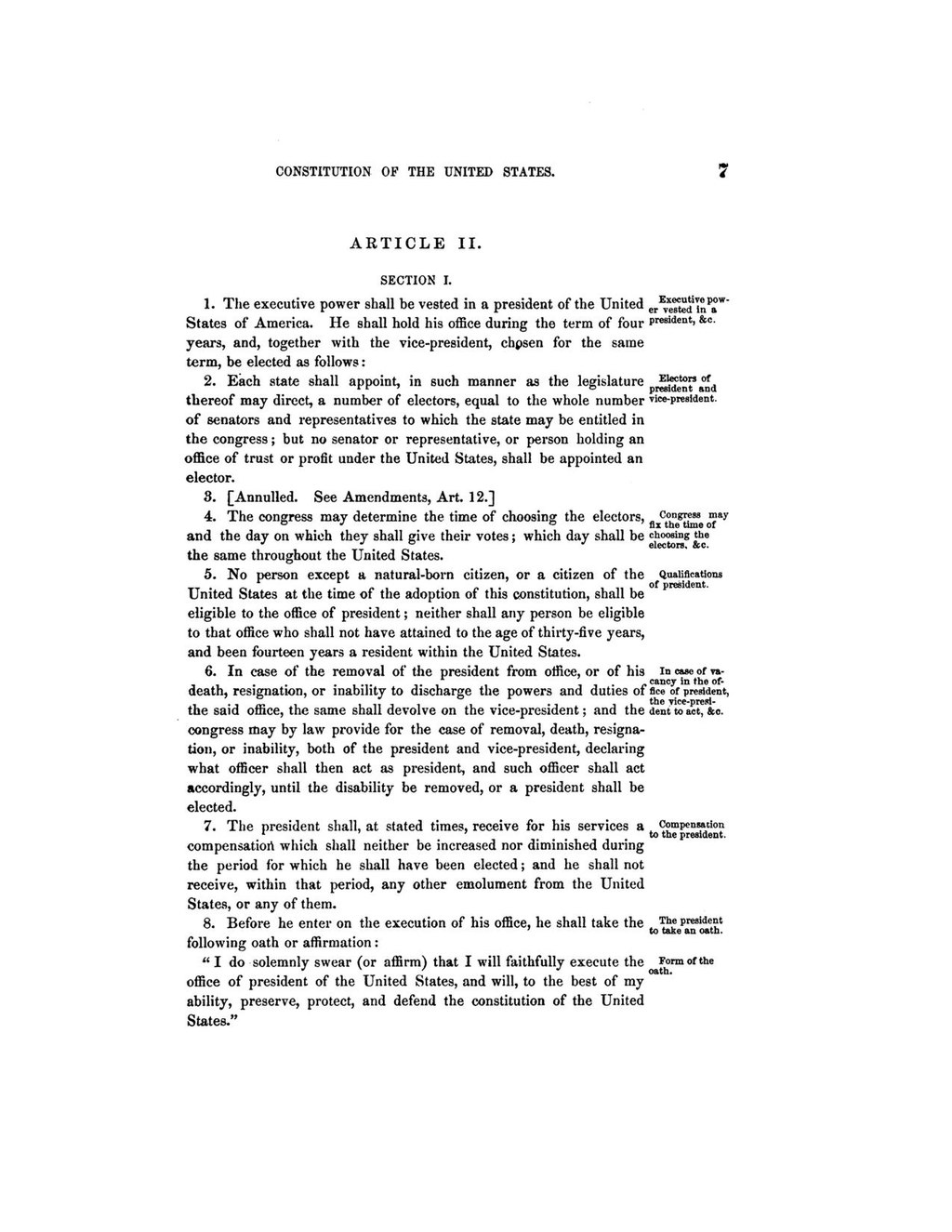ARTICLE II.
SECTION I.
Executive power vested in a president, &c.1. The executive power shall be vested in a president of the United States of America. He shall hold his office during the term of four years, and, together with the vice-president, chosen for the same term, be elected as follows:
Electors of president and vice-president.2. Each state shall appoint, in such manner as the legislature thereof may direct, a number of electors, equal to the whole number of senators and representatives to which the state may be entitled in the congress; but no senator or representative, or person holding an office of trust or profit under the United States, shall be appointed an elector.
3. [Annulled. See Amendments, Art. 12.]
Congress may fix the time of choosing the electors, &c.4. The congress may determine the time of choosing the electors, and the day on which they shall give their votes; which day shall be the same throughout the United States.
Qualifications of president.5. No person except a natural-born citizen, or a citizen of the United States at the time of the adoption of this constitution, shall be eligible to the office of president; neither shall any person be eligible to that office who shall not have attained to the age of thirty-five years, and been fourteen years a resident within the United States.
In case of vacancy in the office of president, the vice-president to act, &c.6. In case of the removal of the president from office, or of his death, resignation, or inability to discharge the powers and duties of the said office, the same shall devolve on the vice-president; and the congress may by law provide for the case of removal, death, resignation, or inability, both of the president and vice-president, declaring what officer shall then act as president, and such officer shall act accordingly, until the disability be removed, or a president shall be elected.
Compensation to the president.7. The president shall, at stated times, receive for his services a compensation which shall neither be increased nor diminished during the period for which he shall have been elected; and he shall not receive, within that period, any other emolument from the United States, or any of them.
The president to take an oath.8. Before he enter on the execution of his office, he shall take the following oath or affirmation:
Form of the oath."I do solemnly swear (or affirm) that I will faithfully execute the office of president of the United States, and will, to the best of my ability, preserve, protect, and defend the constitution of the United States."
